Vitamin B12 in Peptide Research: A Supportive Role in Energy, Recovery, and Cellular Function
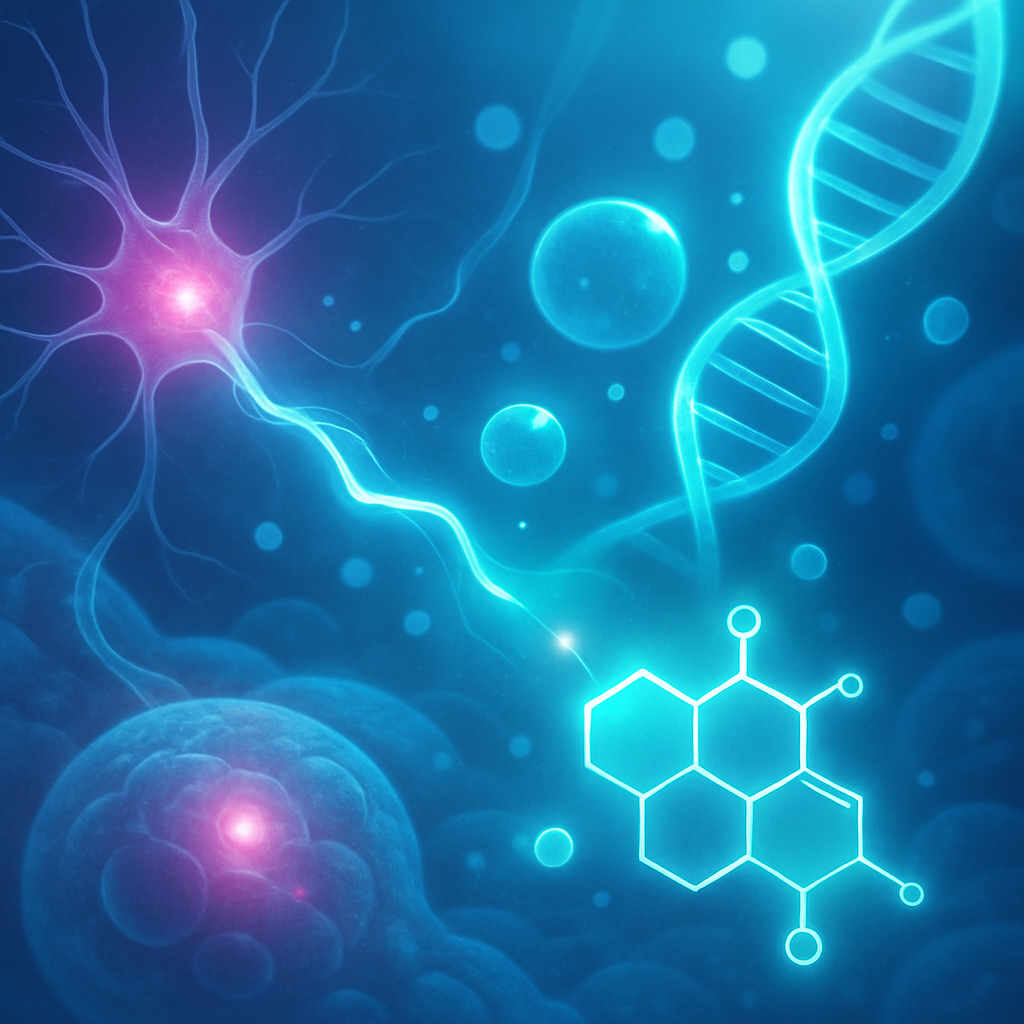
Vitamin B12 is more than just an essential nutrient—it’s gaining traction in research as a powerful cofactor in peptide-based studies focused on energy, regeneration, and cellular resilience. Whether paired with MOTS-c for metabolic output or BPC-157 for neural recovery, B12 supports the underlying biological systems that peptides rely on to deliver optimal results.
The Science Behind GHK-Cu: More Than Just Skin Deep

GHK-Cu, a naturally occurring copper peptide, is redefining skin and tissue science. Beyond its cosmetic glow-enhancing appeal, it plays vital roles in collagen production, wound healing, inflammation reduction, and even gene expression. Explore how this multifaceted molecule bridges the gap between skincare and regenerative biology.
Tesamorelin and Ipamorelin: Clinical Research on Peptides for Fat Loss and Growth Hormone Support
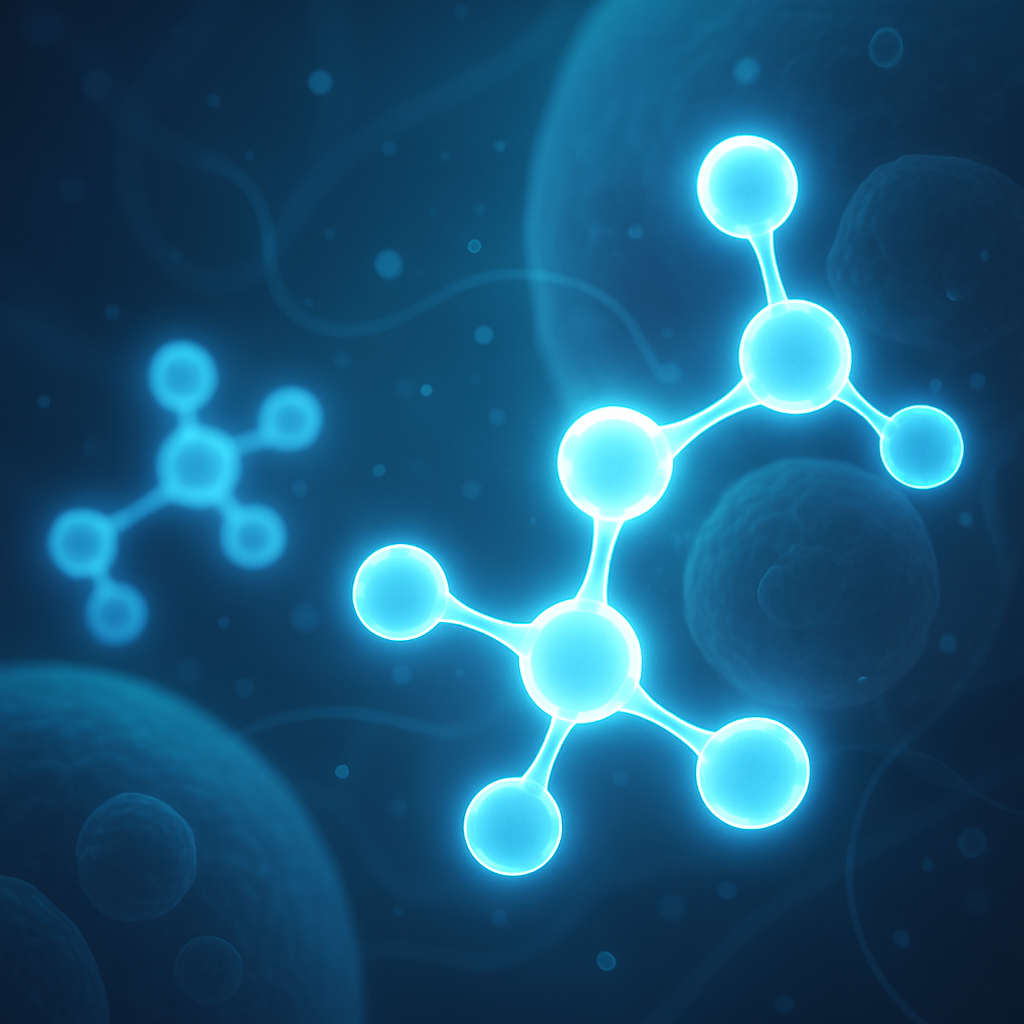
Tesamorelin and Ipamorelin are two of the most studied peptides in fat loss and growth hormone research. While Tesamorelin is FDA-approved for visceral fat reduction and has demonstrated metabolic benefits in clinical settings, Ipamorelin stands out for its safety and potential to enhance growth hormone pulses without unwanted side effects. Together, they offer powerful tools in body composition and endocrine-focused research.
BPC-157 vs. TB-500: Comparing Two Regenerative Research Peptides
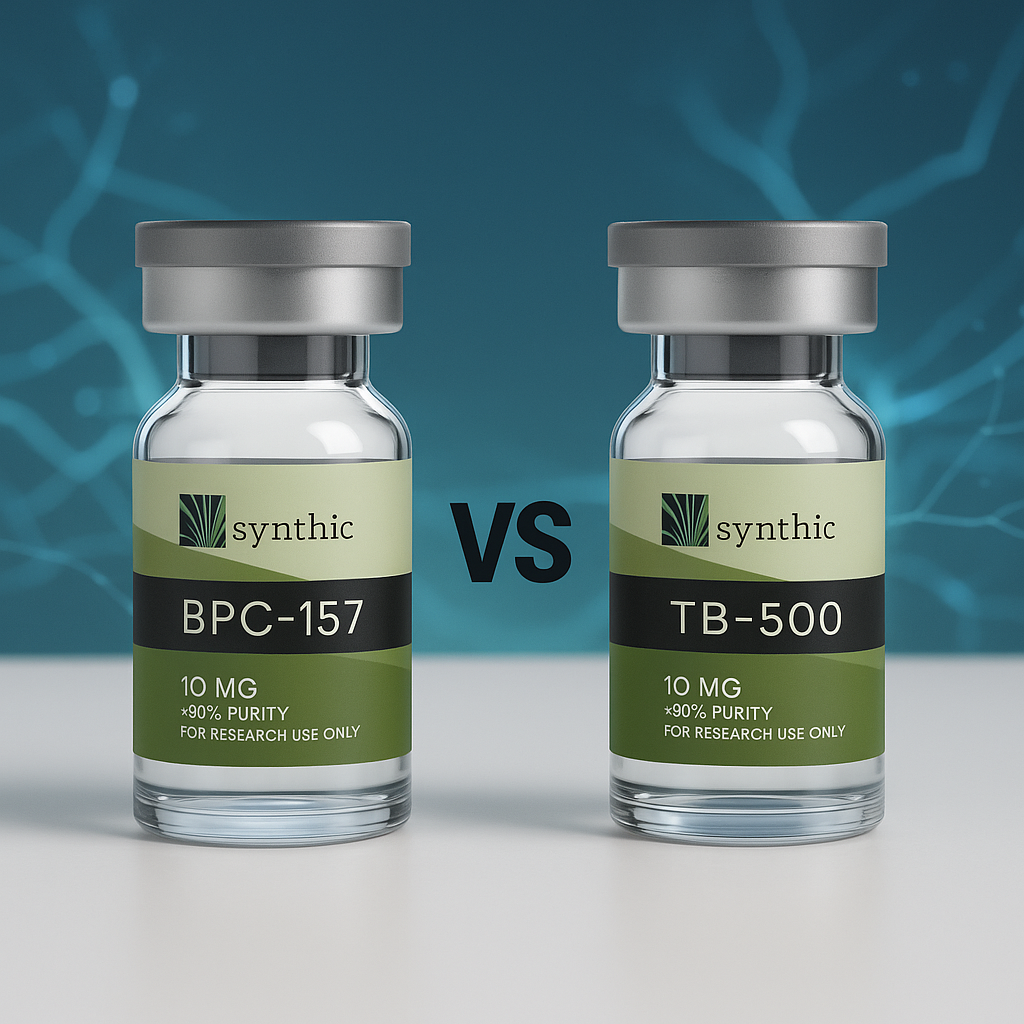
TB-500 and BPC-157 are two of the most studied peptides in regenerative research—each offering unique advantages in tissue repair, angiogenesis, and inflammation modulation. This comparative guide explores how their distinct biological mechanisms and targeted pathways can support muscle, connective tissue, and gastrointestinal healing in experimental models.
Peptides and Angiogenesis: How Healing Happens on a Cellular Level

Peptides like BPC-157 and TB-500 are emerging as key tools in angiogenesis research—the process of forming new blood vessels vital to healing and regeneration. This article explores how specific peptides influence vascular growth at the cellular level, with implications for wound repair, tissue recovery, and biomedical innovation.
NAD+: The Cellular Energy Coenzyme at the Center of Metabolic and Longevity Research
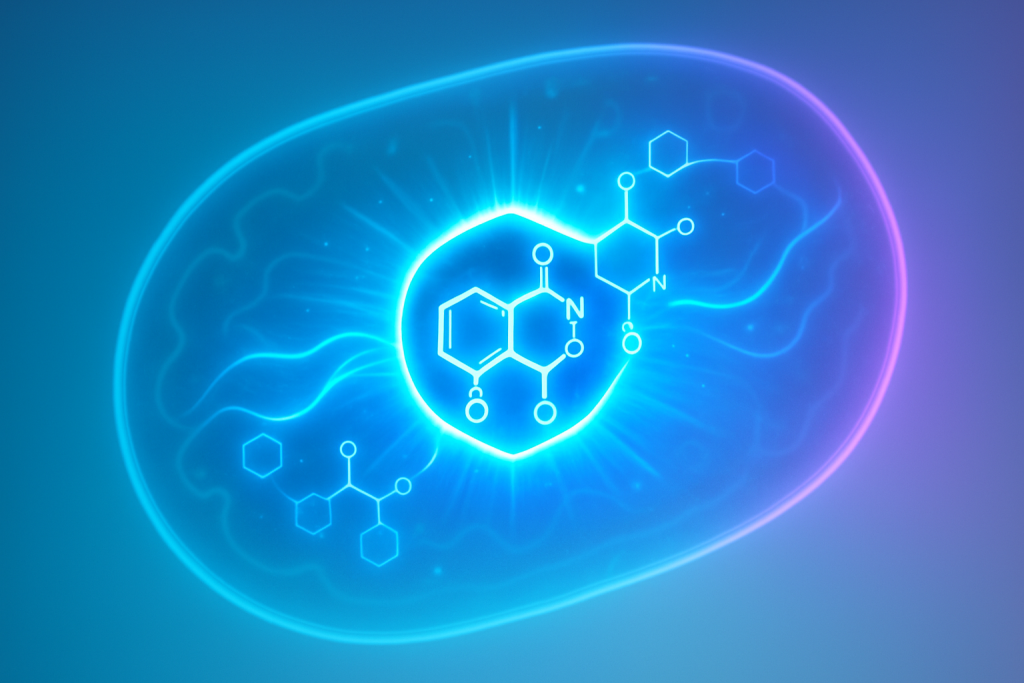
NAD+ is a critical coenzyme found in every living cell, supporting mitochondrial energy production, DNA repair, and metabolic balance. As levels decline with age, researchers are exploring NAD+ as a promising target in studies on longevity, performance, and metabolic health.
MOTS-c: The Mitochondrial Peptide Powering Energy, Metabolic Health, and Cellular Resilience

MOTS-c is a mitochondrial-derived peptide that plays a powerful role in regulating metabolism, energy production, and cellular resilience. This article explores how MOTS-c improves insulin sensitivity, boosts exercise performance, and supports healthy aging—making it a leading target in metabolic and longevity research.
Ideal Storage Conditions for Peptide Stability: Freezer vs. Refrigerator vs. Room Temperature
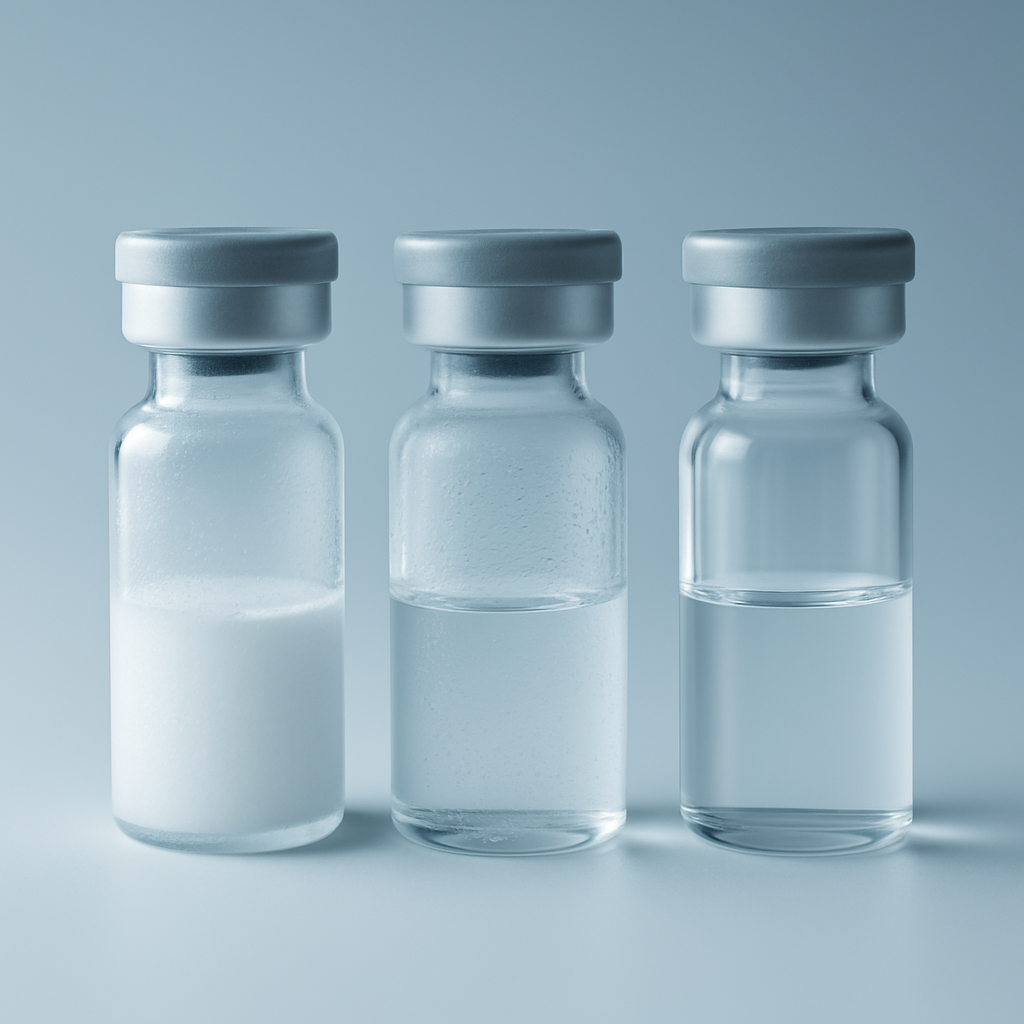
Peptides are highly sensitive to environmental factors like heat, light, and moisture. This guide compares room temperature, refrigeration, and freezing methods for storing peptides—offering best practices for maintaining stability in both lyophilized and reconstituted forms.
Peptides and Fat Loss: Comparing GLP-1 Analogs and GHRPs in Metabolic Research

Peptides are at the forefront of fat loss research, offering powerful tools for studying appetite suppression, metabolic rate, and body recomposition. This article compares GLP-1 analogs like semaglutide and tirzepatide with growth hormone–releasing peptides like tesamorelin, highlighting their distinct mechanisms and potential in metabolic studies.
GHK-Cu and Melanotan I: Peptide Research for Skin Regeneration and Photoprotection

GHK-Cu and Melanotan I are two peptides gaining traction in skin research for their unique roles in regeneration and UV protection. This article explores how their complementary mechanisms support collagen repair, pigmentation balance, and resistance to photoaging in investigational settings.
